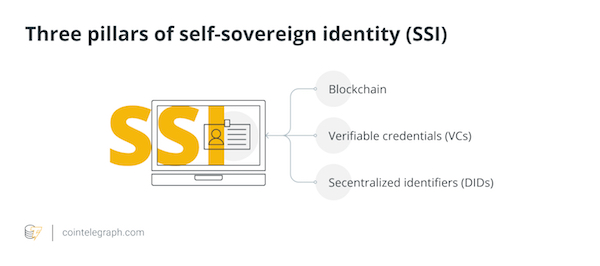One-quarter of the global populace is going to be spending at least an hour a day in the metaverse by 2026, according to tech consulting firm Gartner, for shopping, gaming, education and more. But at some point, people are going to have to demonstrate that it’s really them behind the avatar.
That’s just one reason many believe that decentralized identity (DI) is likely to play an increasingly important role in Web3’s evolution. And even if DI has been generally overlooked by mainstream media, recent events suggest that is about to change.
Consider that in July, the World Wide Web Consortium (W3C) announced a new standard for decentralized identifiers, culminating years of mostly quiet work and deliberations in this area. In August, Gartner proclaimed DI a “must-know” emerging technology, where people can “control their own digital identity by leveraging technologies such as blockchain […] along with digital wallets.” Earlier this year, Ethereum co-founder Vitalik Buterin proposed Soulbound Tokens (SBTs), which would include many DI elements in a non-transferable NFT format.
Sometimes called self-sovereign identity (SSI), decentralized identity can play a key role in mitigating fraud, data breaches, social engineering and theft in the expanding metaverse, say technologists, but perhaps more importantly, it may impact broad and diverse sectors of human endeavor, including education, healthcare, law, travel and employment.
“I believe that SSI will be revolutionizing how we perceive identity management in the upcoming years,” Adam Gągol, co-founder of Aleph Zero, tells Magazine, while others suggest it is on course to disrupt traditional identity management.
“I’m not sure I would say ‘disrupt’ as much as ‘catalyze,’” Scott Kominers, an associate professor at Harvard Business School who has written about DI, tells Magazine. “My hope is that decentralized identity solutions will make existing sources of information on individuals’ background, activity history and interests more powerful and useful than before.”
“An NFT of a diploma in your crypto wallet, for instance, would turn into a permanent academic certification,” Kominers and Jad Esber wrote recently in a Future article.
Decentralized identity won’t necessarily exclude a bit of fun along the way, either. “With public histories, it would be possible to prove that you were early to a trend or active in a…
Click Here to Read the Full Original Article at Cointelegraph.com News…
























